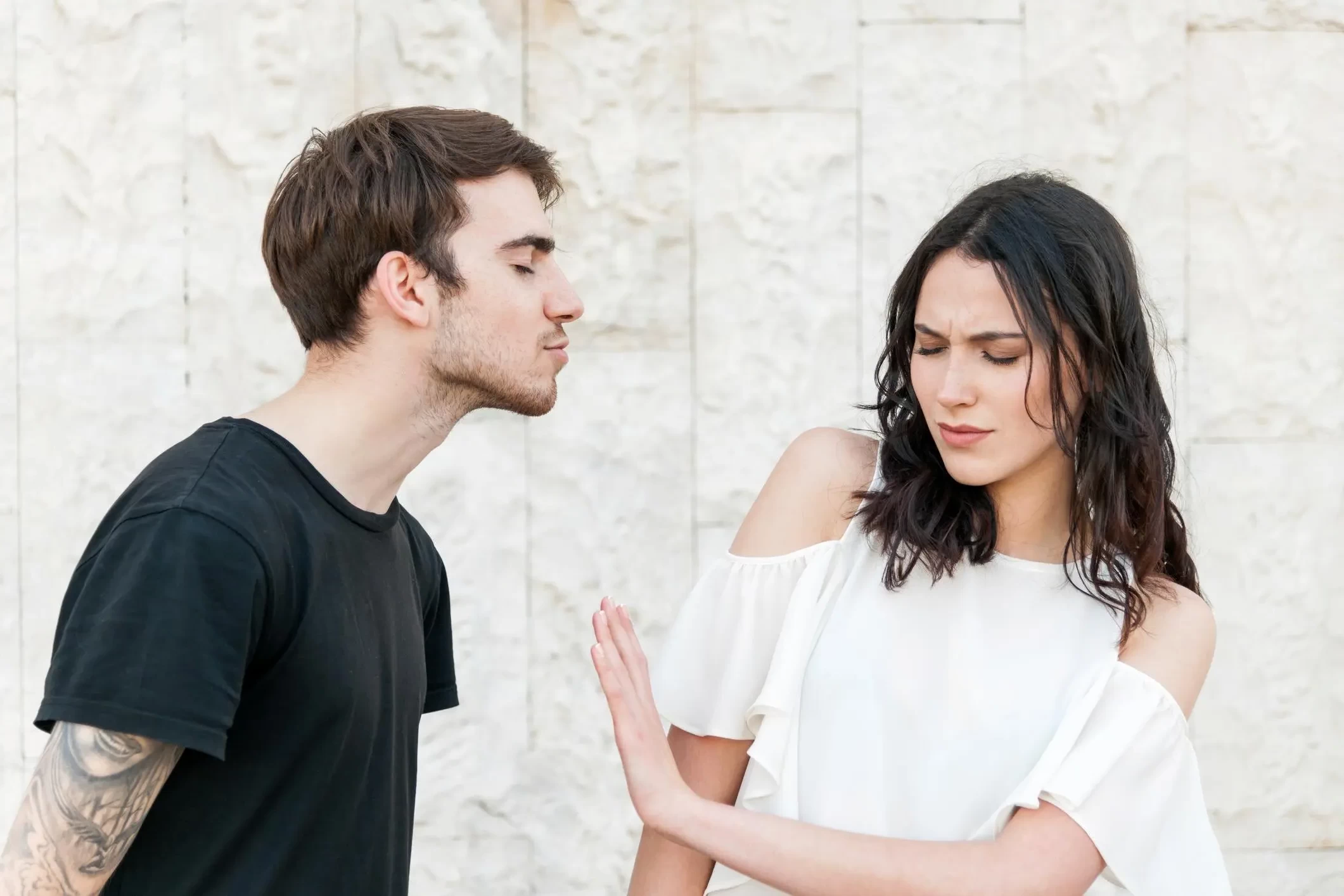Do you know what the letter A stands for in the acronym LGBTQIA2+ ? You are about to learn more about asexuality. No, not sexuality, but asexuality.
We talk less about it, but asexual people exist and their reality is totally valid! What is asexuality? Is it OK not to have sexual desire? Explanations.
I turned to Liza, an asexual person in order to collect her testimony and learn more about asexuality.
A few facts about asexuality that I learned from my discussion with Liza:
- An asexual person is someone who feels little or no sexual attraction.
- For several years, Liza kept her sexual orientation a secret, since she thought it was very rare, that there were maybe two or three other people in Quebec who were going through the same thing.
- Yet, she claims that there there are up to 5.5% of asexual people in Quebec.
- Asexual people may or may not have had sexual experiences: they are not waiting for “the right person.
- Asexual people are not “short”.
- When we talk about having little or no need to have romantic connections, we are talking about aromantism. Be careful, it is not a question of “feeling nothing”: an aromantic person can still want to give affection and tenderness.
- A common misconception is that an asexual person will never find love, although emotional attraction and sexual attraction are two separate concepts. An asexual person may experience romantic feelings and may want to start a family.
- A person can be both asexual and aromantic, or they can be aromantic and feel sexual desire.
- Asexual people use the term “ace” to talk about asexuality.
- It often happens that an asexual person is forced to choose between their couple relationship and their own sexuality, fearing to lose their partner.
- It is still difficult for asexual people to be accepted by certain organizations or therapists.
- The Diagnostic and Statistical Manual of Mental Disorders (DSM) created by the American Psychiatric Association categorizes sexual interest or desire disorder as a problem unless you choose to adopt the label “asexual.”
- It is almost never explained by therapists that it is normal not to feel sexual attraction!
- Until recently there were conversion therapies, as was the case for gay or bi people who need to “cure” their sexual orientation.
The life of an asexual person
I asked Liza how she self-identifies when it comes to sexual identity. Liza replied that she is queer, but if we go into the details, she is a cisgender, biromantic and demisexual woman.
On a daily basis, the fact of affixing all these labels adds additional stress to him, in addition to putting limits on his sexual identity. And be aware that gender identity can change every day : it is not something that is immutable, biological or frozen in time.
With his answer, one can realize that in fact, asexuality is a spectrum. Liza explains that being demisexual, she feels sexual attraction rarely and only if she feels strong emotions like love. All this is valid and normal!
We were influenced a lot in movies and series by making us believe that we absolutely had to fall in love and want an active sexuality… But it’s each one’s reality!
Liza mentions knowing how to be asexual since high school and considers herself lucky to have learned about the term so young, as it is not uncommon for someone to find out they are asexual in their 30s or 40s.
When I asked Liza how she sees the process of coming out in society, she admits that it is normal that it takes time, since it is a very personal journey.
Since heteronormativity is omnipresent in institutions, laws, media and science, it indicates that it is still strong to say in 2022 “I am not hetero!” and/or “ I am not interested in sexuality or relationships”. In addition, it is solely up to the person concerned to choose whether or not they wish to speak about it, and to whom.
A community that is part of the LGBTQ2IA+ rainbow
What is the place of asexual people in the LGBTQ2IA+ community ? Liza replied that she feels that it is still necessary to say: “hi, we exist and we need visibility”! She argues that the struggle of asexual people today could be compared to the struggle that gay people waged in 1970, meaning that there is still much work to be done.
How to respect asexual people?
A good ally for the asexual community is someone who researches the subject, cultivates and celebrates the community rather than just condoning it.
In private, Liza reminds us that it is essential to respect the rhythm of an asexual person, not to put pressure on them to be in a relationship or to have sex. Consent remains the basis, for people of any sexual orientation and gender identity!
How do you know if you are asexual?
Finally, I asked Liza what her advice would be for someone who thinks they are asexual without being sure.
If this is your case, Liza, who accompanies people questioning asexuality several times a month on a voluntary basis, wants to let you know that you are not alone. There are asexual communities on social media that can give you truthful information and support you without judgement.
Above all, she suggests not feeling bad for who you are. Know that even if you feel out of step with social norms, you are absolutely not abnormal! Respect yourself in your sexuality and intimacy: you are as important as your partner. No matter how you live your sexuality and your relationships, it is important to live by your own standards. If you need help or advice, Liza and other asexual people are ready to receive you on their Facebook page Recueil pour les personnes asexuales et aromantiques-Québec.

